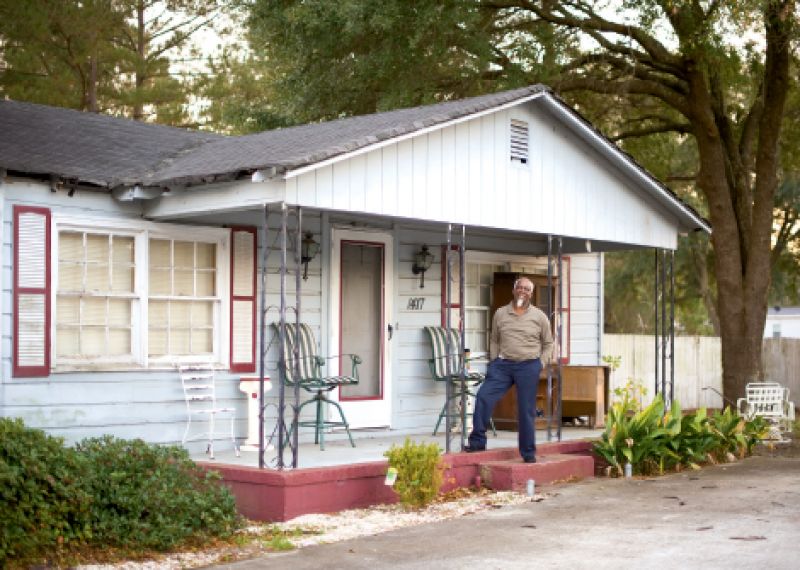
In 2011—after some 16 years of legal battles—Richard Mazyck finally gained ownership of the land at the corner of Six Mile and Rifle Range roads in Mount Pleasant where he’d lived all his life. Purchased by his grandfather, the property had passed to his father, aunts, and uncles. And that generation left it to their own children. The problem was, there weren’t deeds to prove it.
What Mazyck had was heirs’ property: land registered in a deceased family member’s name that legally belongs to all of that person’s heirs, whether there are five or 50 and whether they’re living on the acreage or have never set foot on it. Usually, this situation arises because the ancestor didn’t have a will or no one probated the will upon the person’s death.
When land is owned in common, there is no clear title, and someone like Mazyck can’t use it as equity or dictate that his children will inherit a specific piece of it. Profits gained through enterprises like farming must be shared with all heirs.
“Property can be used as a tool to move families out of poverty, but not if there isn’t a clear title,” says Jennie Stephens, executive director of the Center for Heirs’ Property Preservation. Now a nonprofit, the Center was founded in 2002 as a Coastal Community Foundation project to help locals navigate the title-clearing process.
About 99.5 percent of the Center’s applicants are African-American, notes Stephens. “Some researchers say that those who owned land following Emancipation didn’t have access to the legal system or didn’t trust it, so they passed down land through ‘oral wills,’ which are not honored by our legal system. Today, the issue is more due to a lack of knowledge about how to handle deceased loved ones’ property,” she says.
The Center’s mission is to not only educate but to offer legal services that help clients keep their land. In eight years’ time, it’s resolved 78 titles, preserving $4.6 million worth of property. Protecting the land is critical, because one of the dangers of heirs’ property is that anyone who inherits or purchases an interest in it can force a sale of the land—often to developers.
It was the fear of development encroaching on Mazyck’s family land that moved him to seek assistance. After fruitlessly working with an attorney, he learned about the Center. “Now everything’s finally settled, and I know my kids can hold onto the land behind me,” he says.
To lend the Center a hand, volunteer at one of its regular wills clinics or attend the 2013 Commitment to Justice Award Reception honoring Dr. Ted Stern on March 7.
Commitment to Justice Award Reception: On Thursday, March 7, from 5:30 to 8 p.m., enjoy heavy hors d’oeuvres, a full bar, and light jazz while honoring Dr. Ted Stern and raising funds for the Center for Heirs’ Property Preservation. Charleston Marriott Crystal Ballroom, 170 Lockwood Blvd. $100. (843) 745-7055, www.heirsproperty.org